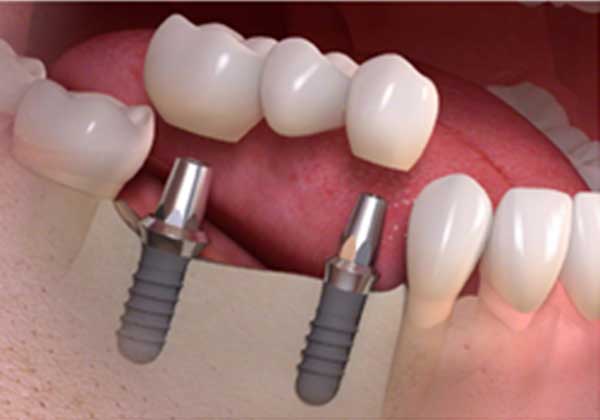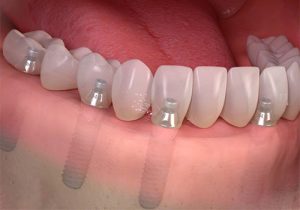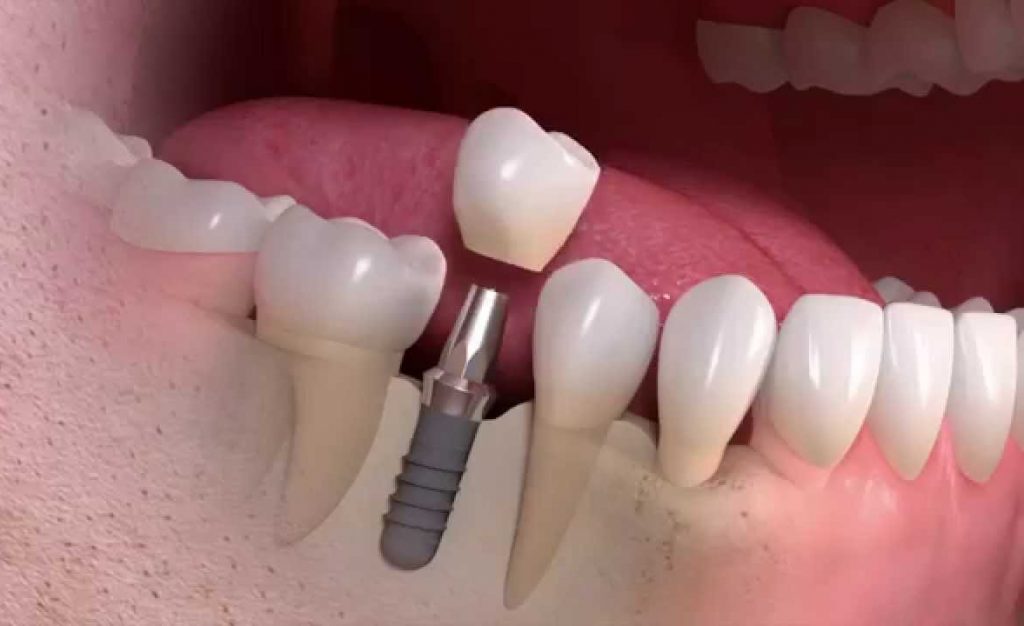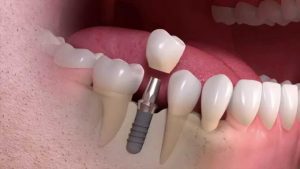Missing a tooth? Not for long!
Dental Implants have now become the standard for replacing older dentistry and missing teeth because they look and feel like your natural teeth and have a higher success rate than all other forms of tooth replacement. An investment in implant dentistry is an investment in overall health, appearance, and well-being, as it involves preserving the integrity of facial structures and replacing missing teeth. Get dental implants with Advanced Dentistry Center in Bingham Farms, Franklin, Beverly Hills, Farmington Hills, Bloomfield Hills, Southfield, West Bloomfield, and Royal Oak, MI.
To properly chew food and speak, the tongue, upper teeth, and lower teeth must work together. When one or more teeth are missing, the bite becomes uneven and will cause shifting of the remaining teeth, as well as bone loss, and muscle deterioration. Missing teeth can cause:
-
Difficulty with eating and chewing
-
Difficulty with speaking
-
Bone resorption (bone loss)
-
Facial muscle deterioration (sunken cheeks)
-
Premature aging of the face
-
TMJ problems (jaw problems)
-
Chronic headaches
-
Loss of confidence
Replacing a Single Missing Tooth
A dental implant can replace a missing or hopeless tooth. First, an implant base is placed into the jawbone to act as the tooth root. After the jaw bone around the implant has healed, an abutment is screwed into the base of the implant to allow for a dental crown to be fitted on the top. Finally, a custom-made crown is placed over the abutment to act and look like a natural tooth.
Replacing Multiple Missing Teeth
 Implant-Supported Bridge
Implant-Supported Bridge
Multiple tooth implants may be placed if you need or desire to permanently replace an extracted or lost tooth. Titanium implant bases are placed into the jawbone to replace the job of the tooth roots. We allow a period of time to allow for the jawbone to heal over the bases before fitting for a crown. Next, abutments are screwed into the bases of the implants to allow crowns to be attached. Finally, custom fabricated crowns are placed over the abutments and will function like a real tooth.
All-on-4
 All-on-4 (Implanted-Supported Denture)
All-on-4 (Implanted-Supported Denture)
An entire arch of teeth can be replaced with all-on-4 (four implants supporting all of the teeth in an arch).
An implant is a titanium “root” which can be placed into the jawbone. Once integrated with your bone, the implant can be used to support
-
Dental Crowns
-
Dental Bridges
-
To secure a complete denture
Dental implants may be used to eliminate partial plates and dentures. The success rates for dental implants are extremely high which is due in part to the fact that root-form implants are made of a biocompatible material, either titanium or ceramic. Dental implant treatment represents a slightly greater investment than a conventional bridge or denture; however, the benefits of implant therapy for most patients outweigh the minor additional cost involved.
Meet Our World-Class Surgeon
 Suhail Mati, DMD, DABOI, FAGD, AFAAID, DICOI
Suhail Mati, DMD, DABOI, FAGD, AFAAID, DICOI
-
Board Certified Implantologist
-
Diplomate, American Board of Oral Implantology/Implant Dentistry
-
Associate Fellow, American Academy of Implant Dentistry
-
Diplomate, International Congress of Oral Implantologists
-
Fellow, Academy of Dentistry


